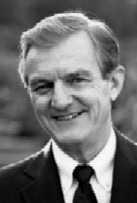« Irrational or just wary? | Main | Is reading about the kettle the same as touching it? »
November 15, 2004
Gordon Bower
DECISION SCIENCE RESEARCHER PROFILE: GORDON BOWER

Dr. Gordon Bower is considered one of the nation's leading experimental psychologists and learning theorists. He did some of the earliest work investigating the effect of mood states on memory. In 1959 he received his PhD with distinction from Yale University. That same year Dr. Bower became a member of the psychology faculty at Stanford University and has remained there ever since. Both his research and his Chairmanship of the of the psychology department are in large part responsible for the establishment of Stanford University as a top rated research institution. In 1973, he was elected to the National Academy of Sciences. He served as Senior Scientist for the National Institute of Mental Health (NIMH) in 1993. During that time Dr. Bower co-chaired a panel of scientists gathered together from across the behavioral and social sciences to investigate the current state of mental-health knowledge in those fields. From that work came a guide to develop NIMH into the 21st century entitled Basic Behavioral Science Research for Mental Health: A National Investment. Dr. Bower has also served as president of The American Psychological Society and the Western Psychological Association, and as Senior Science Advisor to the American Psychological Association.
Currently, Dr. Bower is the A. R. Lang Professor of Psychology at Stanford University. Beyond his own research, he contributes to the strengthening of institutions that support scientists. Dr. Bower's research on the role of emotions in learning has played a significant role in the current resurgence of interest by scientific researchers into the study of emotion.
Field of Expertise and Research Interests:
Conditioning, Learning, Memory, Language Comprehension, Mathematical Models, Computer Simulation of Memorial Processes, Behavior Modification
Academic Career:
1959-present Professor of Psychology at Stanford University
Selected Honors and Affiliations:
1993-Present Science Directorate American Psychological Association, Board of Scientific Advisors
1993-Present Elected Chief Scientific Advisor American Psychological Association, Board of Scientific Advisors
1993 Honorary Doctorate of Science Indiana State University
1992-1993 Senior Science Advisor National Institute of Mental Health, NIH
1991-1993 President American Psychological Society
1991 Honorary Doctorate of Humane Letters University of Chicago
1990-1991 President Western Psychological Association
1989-1990 President Elect Western Psychological Association
1989 President Society of Experimental Psychologists
1989 William James Fellow Award American Psychological Society
1987-1988 Elected Chairman of the Governing Board and President Cognitive Science Society
1983-1986 Associate Dean of Humanities and Sciences Stanford University
1978-1982
Chairman, Stanford University, Psychology Department
Research Advisor, National Institute of Mental Health, NIH
Research Advisor, American Psychological Association
Distinguished-Chair Professor, Stanford University, Psychology
Department
1973 Elected Member National Academy of Science
1959 to present Professor of Psychology at Stanford University
Education:
1959 Ph.D. (With Distinction) Psychology Yale University
1957 M.S. CT Psychology Yale University
1954-1955 Woodrow Wilson Fellowship Philosophy of Science University of Minnesota
1954 B.A. Western Reserve University
Quotes:
"I was sitting there all alone, waiting anxiously for the intruders to break in, when who should happen along but a colleague and former Yale graduate student roommate, Gordon Bower. Gordon had heard we were doing an experiment, and he came to see what was going on. I briefly described what we were up to, and Gordon asked me a very simple question: "Say, what's the independent variable in this study?" -Philip G. Zimbardo after the Stanford Prison Experiment.
The following is from Emotion and Social Judgments Gordon H. Bower
"In 1976, while studying the impact of various emotional states on memory (Bower et al., 1978; Bower, 1981), I also became interested in mood effects on social judgment. Since the effects of mood on memory probably play a central role in biasing judgments, I will briefly tell you what we were learning from that research. We were finding two effects - one we called "mood-dependent retrieval," and the other we called "mood-congruent processing"...
Mood-dependent retrieval refers to the idea that a person's emotional state can become associated with ongoing events, so that the events and the emotion are stored in memory together. Later those memories can be best retrieved if the person returns to an emotional state similar to that experienced during the original event. Thus, when made happy, people should do better recalling events experienced earlier when they were happy. When sad, they should more easily recall events they experienced when they were sad...
It appears that mood-dependent retrieval is at work in a variety of learning and recall situations beyond working with word lists in a laboratory. For example, it applies to people's recall of autobiographic events. When asked to recall an unselected sample of autobiographic events from their recent past, people will retrieve a biased set of events that agrees with their emotional state during recall...
The second phenomenon (Bower, 1981; 1983) we called mood-congruent processing, which means that a person's mood can sensitize the person to take in mainly information that agrees with that mood. Material that is congruent with the mood becomes salient so that the person attends to it more deeply than to other material. The person thinks about that material more deeply and associates it more richly with other information (an activity we call associative elaboration). The result is that the person learns this material better than non-mood-congruent material. Thus, when happy, people will attend and respond more to pleasant than unpleasant pars of their environment and learn more about them; when sad, they'll attend and respond more to its unpleasant than to its pleasant parts and learn more about them...
There's a mood-congruent advantage: people who were happy during the initial experience learn the happy events better; angry people learn anger-provoking events better; and sad people learn sad events better... Although these results illustrate mood-congruent learning under laboratory-induced moods, available evidence suggests that such selective learning also happens with naturally occurring variations in everyday moods (Mayer et al., in press)."
Posted by DSN at November 15, 2004 09:57 AM